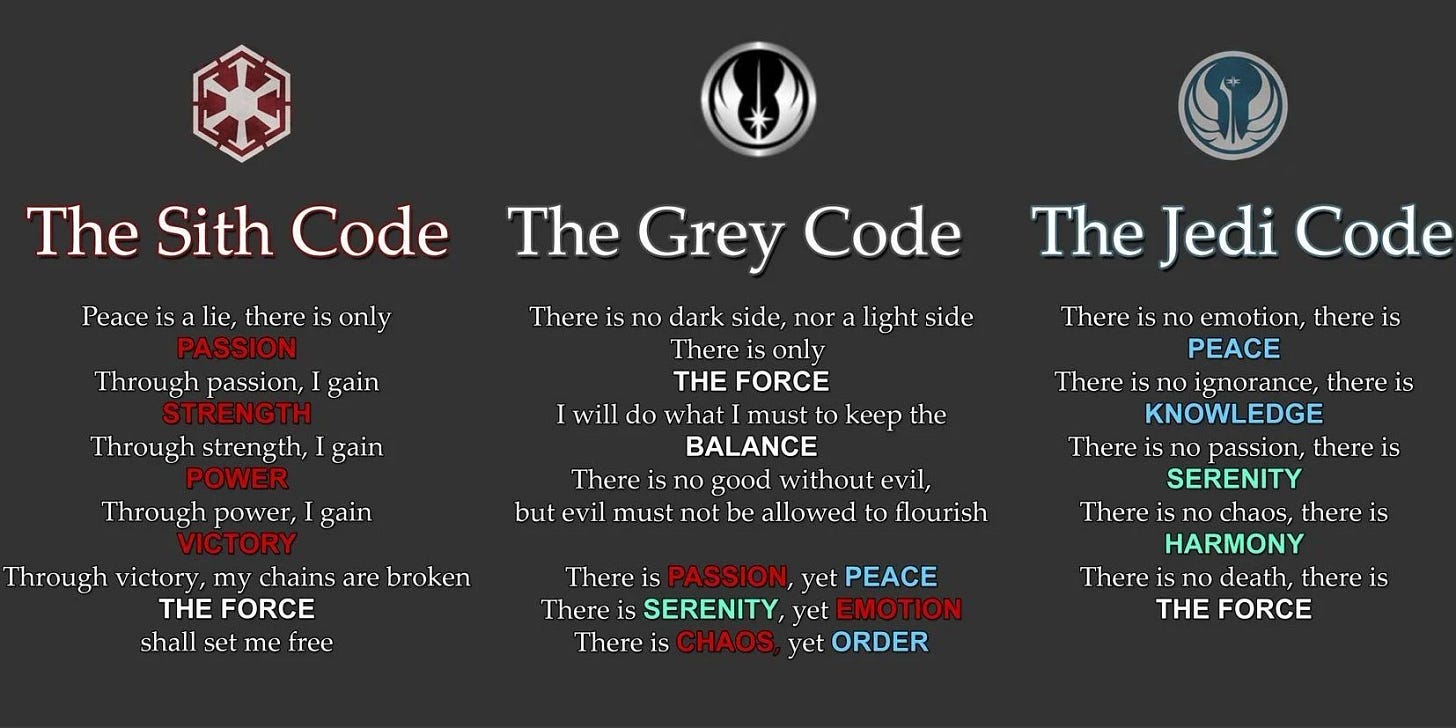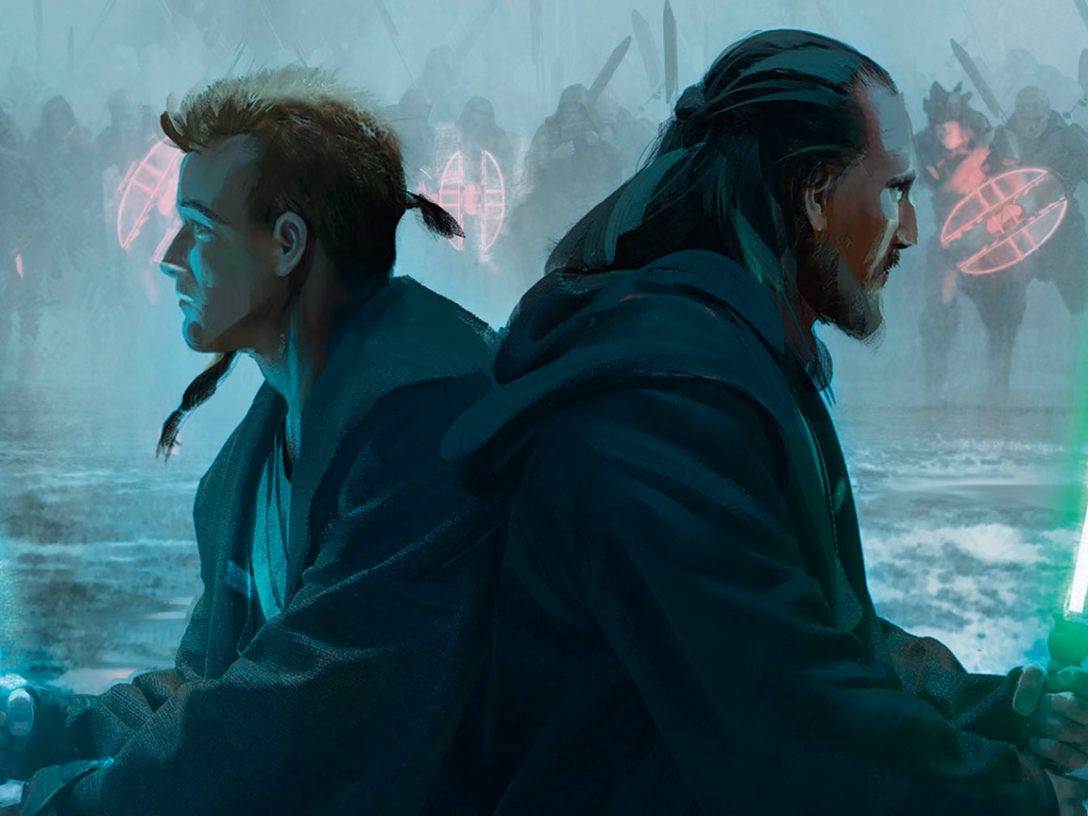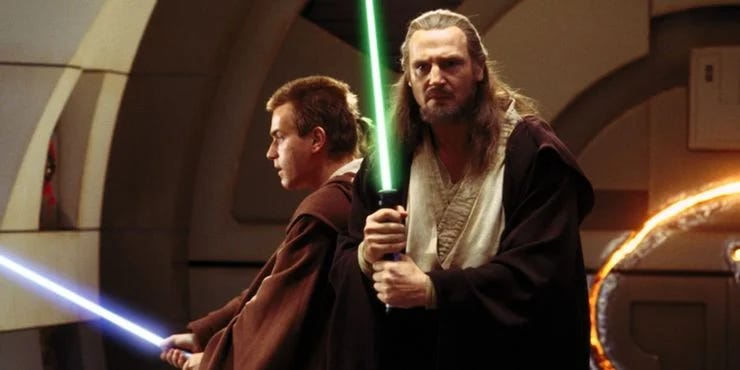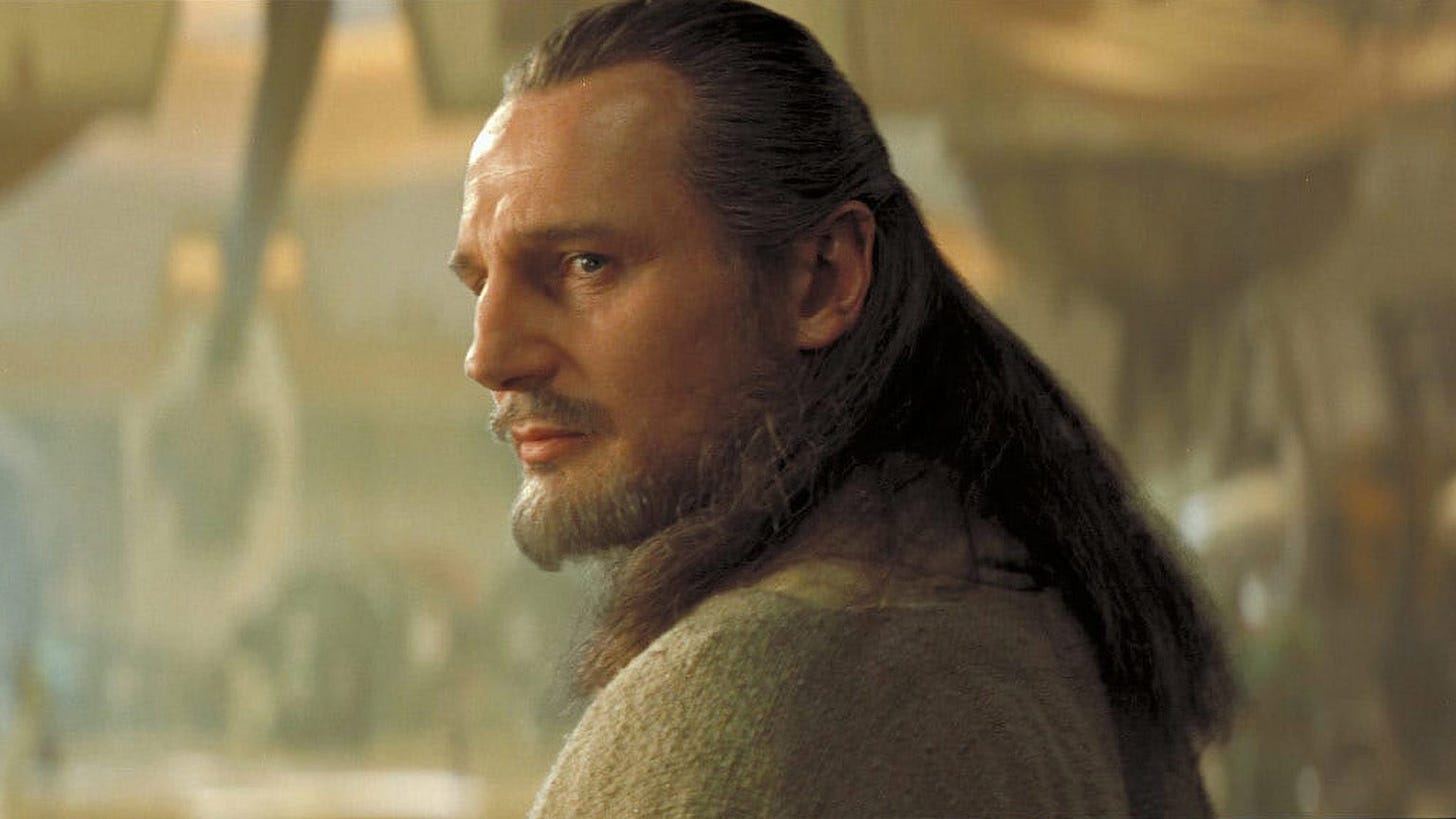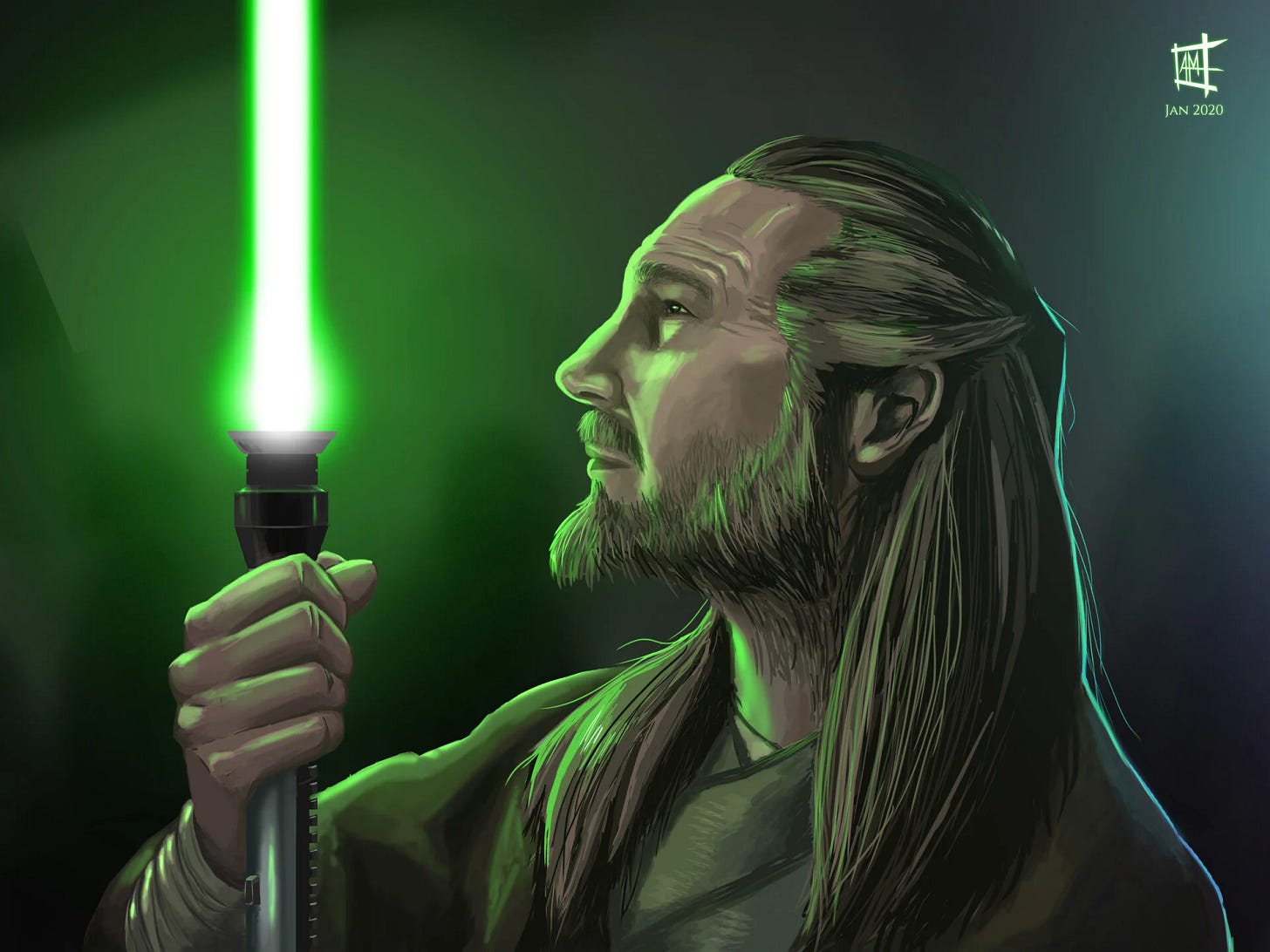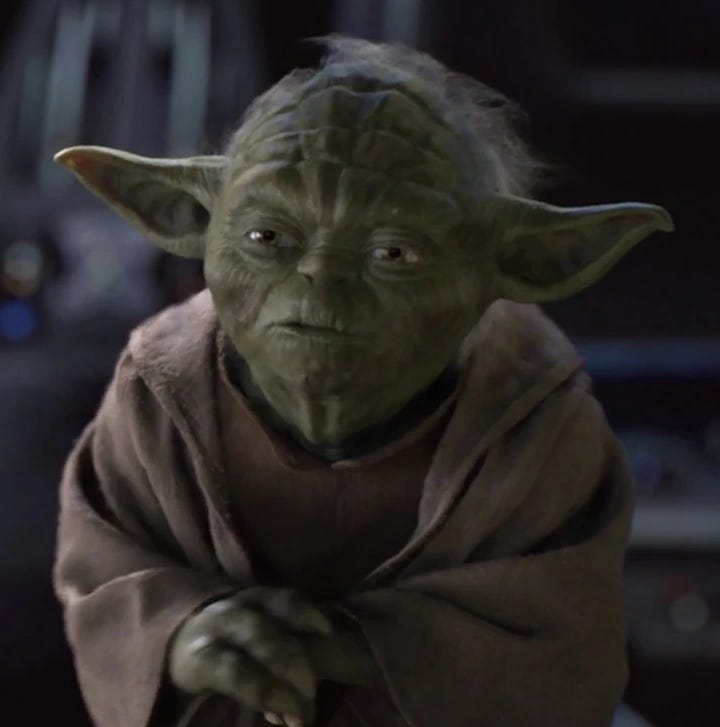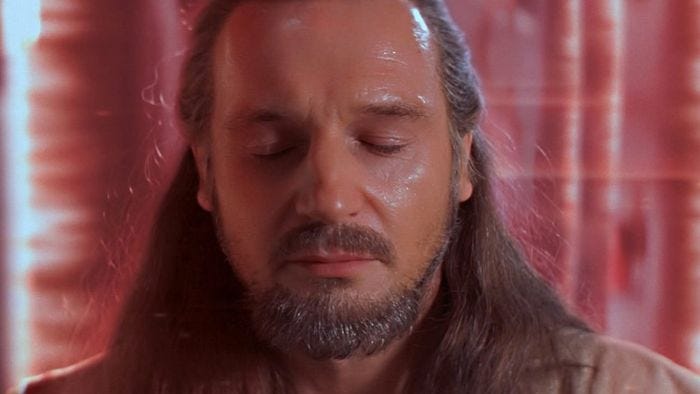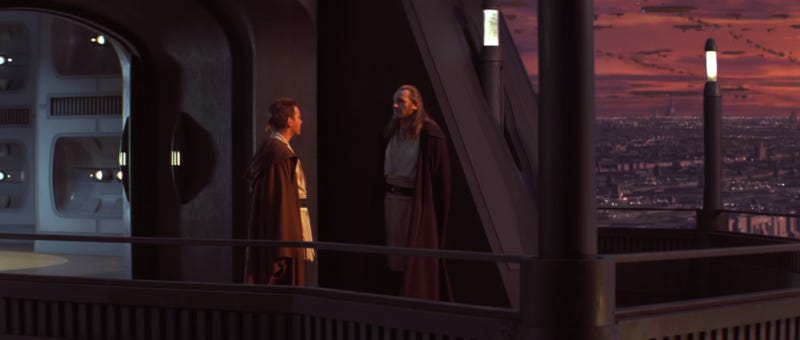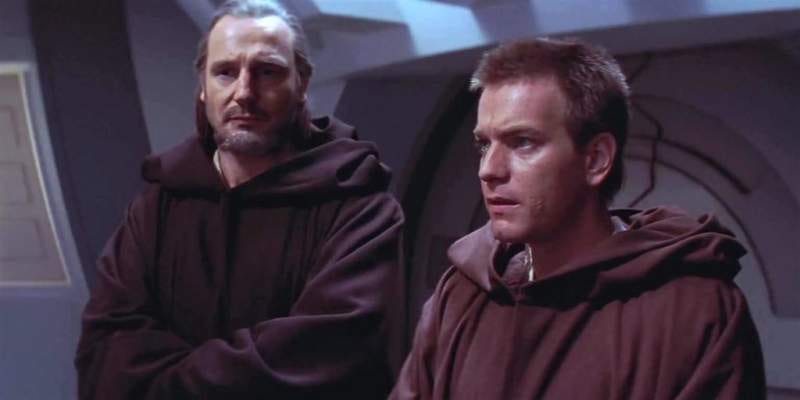Star Wars: Master & Apprentice
My Favorite Quotes From This Claudia Gray Novel
Happy belated May The Fourth be with ye :D
There is no emotion— there is peace.
There is no ignorance— there is knowledge.
There is no passion— there is serenity.
There is no chaos— there is harmony (1).
Canonically, the Grey Code is not something accepted by hardcore Star Wars fans who closely follow the lore. It does not fit with the binary of light and dark that the Jedi follow. The Force can only be in balance if there is no darkness.
As someone who watches the movies, enjoys the games, and occasionally reads the books, I call bullshit.
Bullshit on the idealistic view that the force is in balance if the dark does not exist. Balance is moderation. A Yin and Yang of good and bad within everyone and though the Jedi attempt to escape that, what a painful existence to have to force perfection on oneself.
I more closely align with the Grey Code. The Jedi Code sounds too strict and adamant and something that I definitely would not want to be a part of. In a system that cuts between a binary demanding you to be good or evil, black or white, the Jedi Code is the opposing coin-face to the Sith.
Too much in any one direction will lead you to a path of unrighteousness because life is about moderation; these extremes in the spectrum do more harm than good in one’s life, be you a follower of the Force or not.
“People are more than their worst act,” Obi-Wan recited. It was something Qui-Gon had said to him many times, which at last seemed to be sinking in. “At least, most people. And they are also more than the worst thing ever done to them” (116).
I loved this moment in the book because it was a beautiful lesson for Obi-Wan. He has rigidly followed through on the Jedi Code and believes in the righteous justice of the Jedis to a fault. They can do no evil, so he cannot even fathom them, and by that extent, him, making a mistake.
But Qui-Gon hammers it in that people should not be looked at through that slim lens of good or bad. They are more than their actions dictate, they are more than their worst mistakes or their best successes.
People are complex and confusing beings.
To denigrate them to being just one or the other is a disservice to them but also to ourselves when we decide that trust is overrated.
Pax didn’t intend to change himself to fit the universe. If the universe wanted him to blend more, well, then it could change to fit him (165).
Though I disliked Pax for a majority of the novel for being uncompassionate, verbally inconsiderate, and socially unaware, I liked this thread of thought he purported. His upbringing with protocol droids dictated his stilted conversations and lack of social cues but it also instilled in him a strong sense of self.
I likened this statement to the carrot, egg, or coffee bean story. You can let your surroundings change you to better suit their needs (and this goes for people or environments), or you can influence your surroundings to be better because of your existence within it.
Why change for people who don’t give a damn? Why not inspire change by being yourself and accepting that whatever may come, will come?
When Obi-Wan saw him, his blue eyes widened. “Master!” he called. “No! Save yourself!”
This is the boy who believed I found him unworthy as an apprentice. The one I failed to tell about the most significant change in my life, and maybe his.
I don’t deserve him. I never have (176).
So the entire narrative drama in this novel was how Qui-Gon was offered a seat on the Jedi Council, but was not the one to tell Obi-Wan of this life change. They go back and forth where Qui-Gon wants to accept the seat, but feels unworthy, and then feels even more unworthy for not telling his Padawan.
Obi-Wan is conflicted because he thinks his Master doesn’t want him or cannot deal with him and that he would be better of elsewhere.
It’s a lot of insecurities surrounding their relationship, but the core of it being that each doesn’t feel good enough for the other, and they don’t know how to communicate with each other to save their lives.
Even the Jedi are fallible to normal, human skills.
He sat for a few long moments, considering this, to be sure he was answering honestly. “The Jedi don’t make the Republic do anything. We serve the Republic, not the other way around. But as to why the Republic doesn’t act…I have no good answer for you” (194).
I loved how no matter who was asking him a question or what he knew to be right, Qui-Gon always gave thought and consideration to the people around him.
This is a very politically savvy answer, but it’s also an answer that he has to think about because he knows this is what he should say, but he himself doesn’t know if he truly believes in it.
Qui-Gon is struggling with the idea of the Jedi Council being imperfect and allowing slavery to persist in their realms. What he knows is wrong, is not reflected in the ideals of the government that he serves and that is a knife twist to his conscience.
Rael’s first response was a sneer. “As you see it. You always had a weakness for seeing what you wanted to see, Qui-Gon. Always were a soft touch for a sad story. Halin Azucca sized you up pretty good.”
This wasn’t entirely untrue. Qui-Gon refused to be ashamed of it. “I attempt to understand the viewpoints of everyone I deal with. That’s not a weakness. It’s how I operate. And I’ve learned more that way than I ever would by being too quick to cast blame” (204).
This is why Qui-Gon is the GOAT. He approaches every situation and every interaction with equanimity. Rael is a good foil (Obi-Wan being the best character foil) for Qui-Gon because they were both Padawans to Count Dooku but they have wildly different takes on the Force and what makes them a good Jedi.
To Rael, Qui-Gon is weak. Not taking a stance is a sign of weakness because it’s not what he’s supposed to be doing but more importantly, it’s not siding with what Rael wants.
Qui-Gon is balancing these forces but that isn’t what Rael wants. Rael wants, no, he expects, Qui-Gon to be on his side with their history and it’s a pride thing, but also an emotional one because he never thought Qui-Gon would go against him.
Little does he know, Qui-Gon is a force to be reckoned with.
“We? Not the chancellor, not the Galactic Senate, not even the people of the Republic, but the Jedi?” Yoda thumped his gimer stick on the floor. “Want to rule, do you? Dangerous this is, in one who would join the Council. Dangerous it is in any Jedi…Many ways there are of serving the right. We work within our mandate, and there do as much good as we can. To do otherwise, to substitute our judgement for that of the Republic, is to repeat the mistake of the past” (212).
Qui-Gon has a great, long response to this where he contemplates that if the Council doesn’t stand for the good of people, then what does it stand for? He begins to see how the Council and even the Republic is not as straight-laced and perfect as he’s been taught to believe and that realization rocks him.
Yoda makes some excellent points here as well, stating that the changes Qui-Gon seeks is well outside of the Jedi Council’s powers and would be an overstep to do so.
Qui-Gon believes in doing what is right, no matter what.
Yoda believes in doing what is right, within the confines of what he is allowed to do.
“It matters,” Qui-Gon said quietly. “It matters which side we choose. Even if there will never be more light than darkness. Even if there can be no more joy in the galaxy than there is pain. For every action we undertake, for every word we speak, for every life we touch— it matters. I don’t turn toward the light because it means someday I’ll ‘win’ some sort of cosmic game. I turn toward it because it is the light” (259).
Whoever said the Jedi Order isn’t a cult was terribly, magnificently wrong. This is all well and dandy because Qui-Gon is speaking on the light, the goodness that you can and will find in people.
If he focused on the dark, this would be a different story and one that does not bode well for those who might meet him.
But at the end of the day, it’s the choices we make that dictate our lives. And he chooses to do good.
“It was never for me.” Fanry lifted her chin, spearing Rael with her gaze. “It was for Nim. Everything you did was for her. You never stopped to ask yourself if the things a wounded child might have needed were the same as the things a future queen would need. You protected me when you should have taught me. You talked at me when you should’ve listened to me” (308).
I love this side of Fanry because Rael was in the wrong for almost all of this book. He broke his Jedi Code, he became lax, he felt more tied to his shame than to his duty and that cost him the trust of Fanry, the girl who relied on him most.
These are bitter words but fair ones to be said to the man who never saw you as more than just a project to nurse his bandaged ego.
“Will you negotiate? Will you help us find a peaceful solution?” Rael asked.
“I’ve seen the cost of peace.” Fanry’s eyes glittered with a febrile, angry light. “I prefer war” (309).
Fanry has so many good lines once she forcibly crowns herself queen of Pijal. I couldn’t help but love her. However, the moment she forces her will onto other people and forgets about the loss of life she promised to protect, she loses all respect from me.
She has played a helpless pawn for so long and how it has destroyed and enslaved her people. Now, she is finally allowed to be angry. Now she can finally become a Queen.


